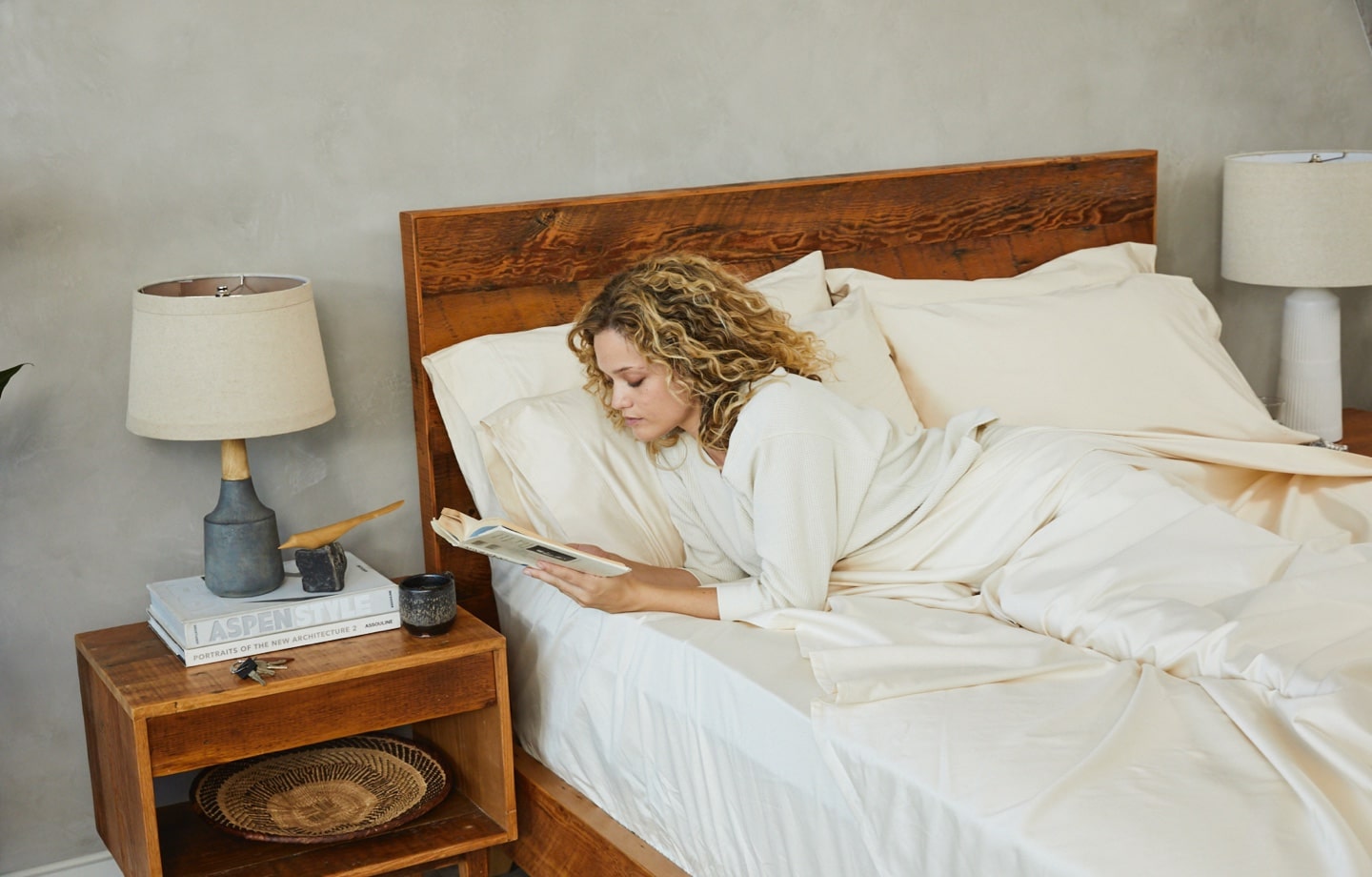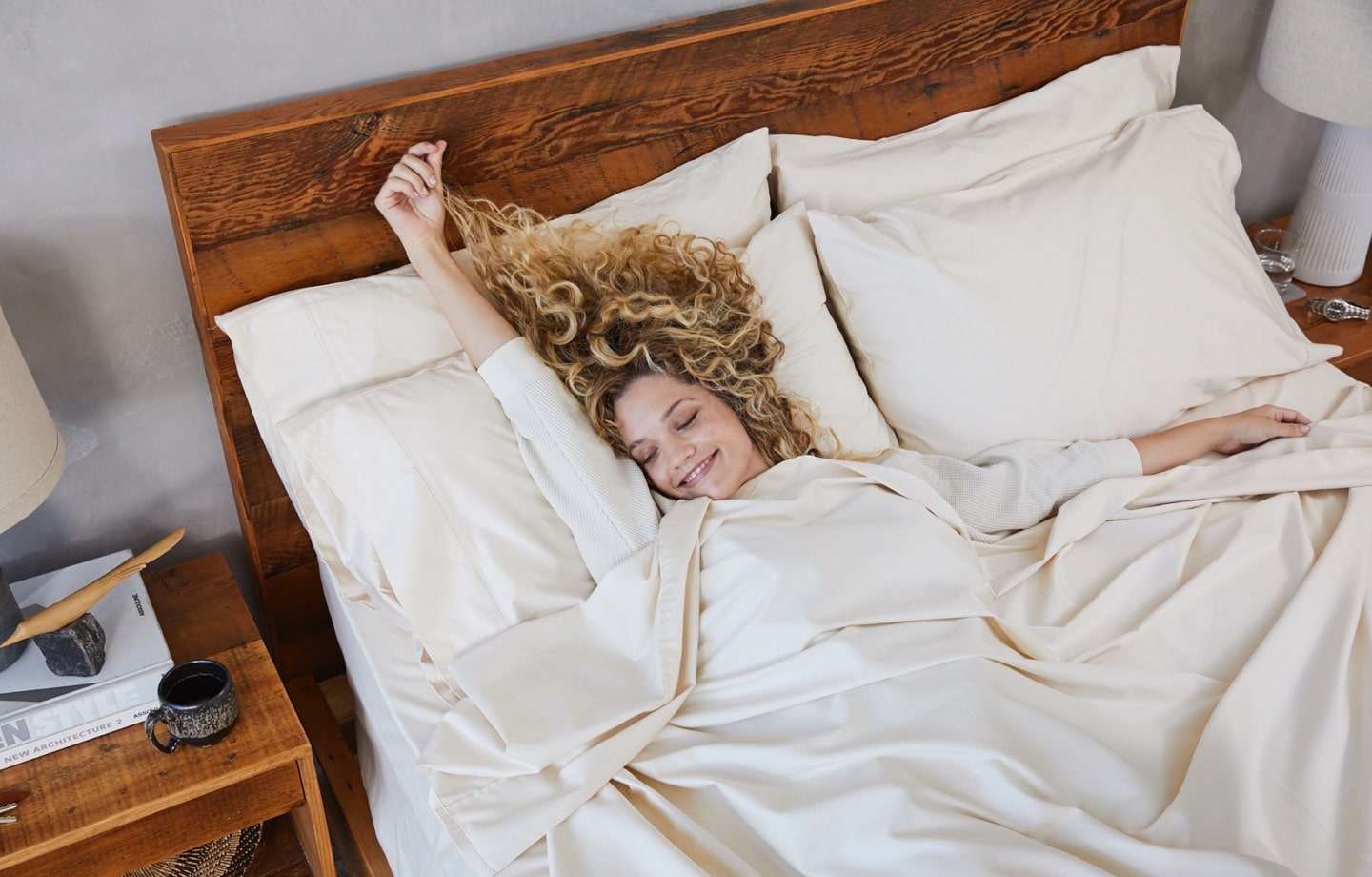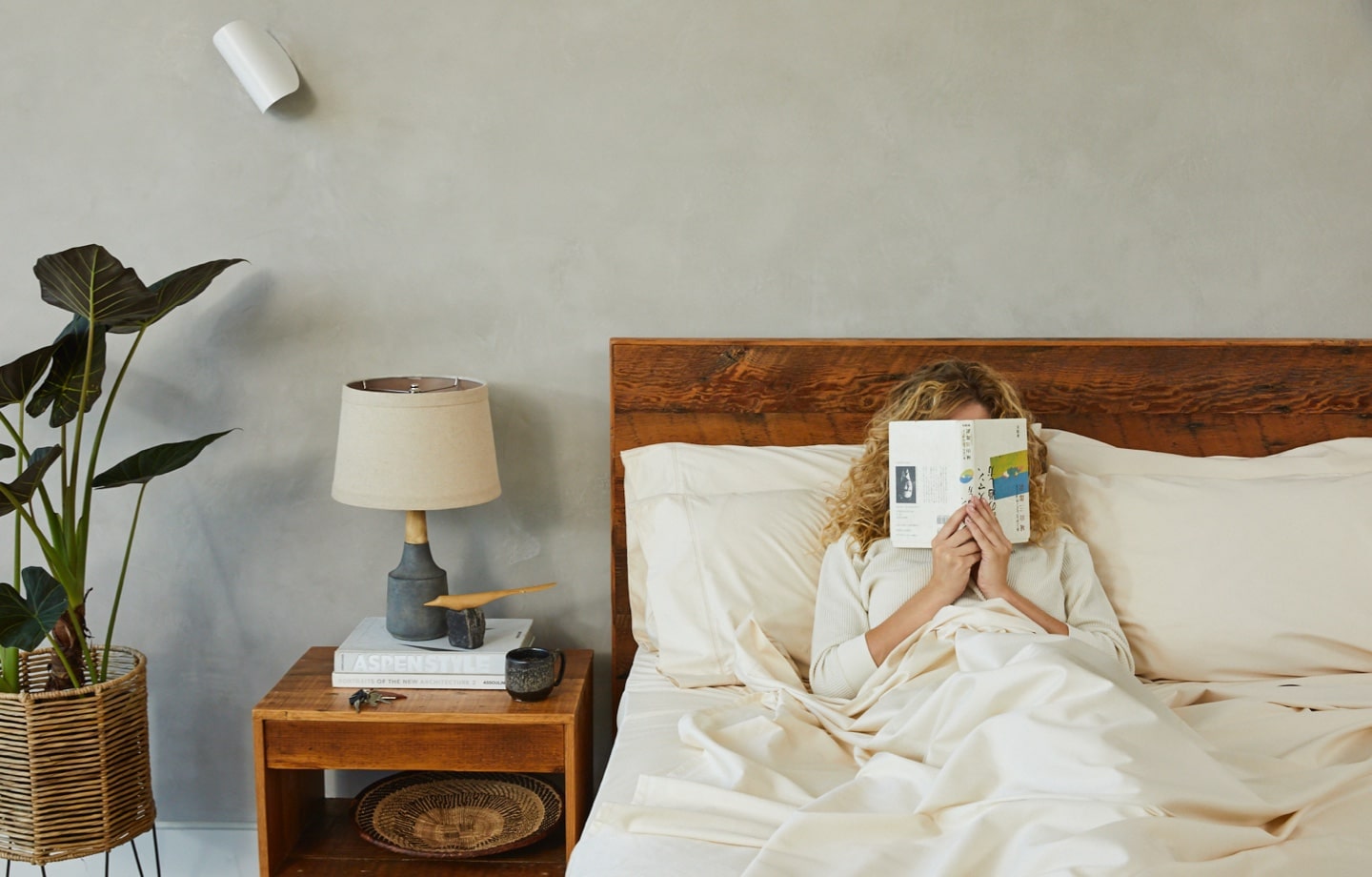Struggling with sleep anxiety? Discover ways to combat sleep anxiety and improve your sleep quality with tips and expert advice.
For many people, sleep is elusive. In fact, according to the CDC, about one in three adults in the U.S. report not getting enough sleep every day and an estimated 50 to 70 million Americans have chronic or ongoing sleep disorders.
One common issue is sleep anxiety or worry and fear about being able to fall or stay asleep.
When restful slumber is consistently hard to come by, it can increase stress around bedtime and the ability to drift off in the first place. As a result, our brains create a feedback loop reinforcing the idea that getting quality sleep is nearly impossible, making falling asleep more difficult and worsening sleep anxiety.
“Some people find that they already have insomnia and trouble sleeping, they get anxious about their sleep and it can make things worse and continue the sleep issue,” says Dr. Shelby Harris, Director of Sleep Health at Sleepopolis. “Other people talk about sleep anxiety as more of a worry about getting perfect sleep and the negative consequences of sleep, so they become extremely rigid about their sleep behaviors and routines to “guarantee” (in their minds) good sleep. And sometimes it is a combination of the two.”
Anxiety itself is one of the most prevalent mental health disorders, impacting about 40 million people across the country. For individuals with anxiety, sleep loss can exacerbate responses in the brain that contribute to worry and rumination that often lead to sleep anxiety. Anxiety also tends to intensify at night, when distractions of the day fall away and you have a moment with your thoughts.
If you struggle to doze off or wake up regularly throughout the night, you may be experiencing sleep anxiety. Here’s everything you need to know, including triggers, risks, and how to combat this common sleep problem so you can finally get some shuteye.

Read more: 6 Ways to Recover After a Bad Night of Sleep
Sleep Anxiety Triggers
Sleep anxiety doesn’t happen in a vacuum. A handful of preexisting conditions and stressors can increase stress around slumber. These are some of the most common:
Persistent Stress: Everyday stress, emotional strain connected to work or family, and feelings of anxiousness about the next day’s tasks and responsibilities can put the brain on overdrive, hindering the ability to drift off.
Trauma: Distressing life events, traumatic experiences, and PTSD can trigger an ongoing flight-or-flight response in our bodies, disrupting sleep routines.
Insomnia. Individuals with insomnia experience a chronic lack of sleep and restlessness. Those suffering from this disorder can experience heightened anxiety and worry about bedtime due to their frequent inability to fall asleep.
Nightmares. Research shows that anxiety can influence deep sleep known as REM sleep. This is the sleep stage in which we dream. However, severe worry can result in stressful dreams and even nightmares that wake you in the middle of the night and create a negative association with sleep.
Poor sleep hygiene. Alcohol, caffeine, or tobacco can all contribute to feelings of anxiety, and consuming these substances close to bedtime can hinder the ability to get solid shuteye in the first place.
Read more: Sleep Quality Versus Sleep Quantity: What Matters More?
Sleep Anxiety Signs and Symptoms
Sleep anxiety symptoms vary from person to person. Here are nighttime indicators you may be experiencing this particular sleep disorder.
- Extreme worry or feelings of doom
- Catastrophizing thoughts
- Restlessness
- Increased heart rate or heart palpitations
- Dizziness
- Nausea and sweating
Lack of Sleep and Health Risks
Sleep offers the mind and body a chance to heal and recover. Not only can sleep anxiety keep you from falling asleep, but it disrupts the capacity for deep sleep, a stage when the body engages in critical restorative functions that allow you to feel energized and ready to take on each new day.
In addition to heightened generalized anxiety, a lack of consistent, quality rest can result in a handful of serious health issues, including heart and kidney disease, high blood pressure, diabetes, stroke, obesity, and depression.
“If you are having insomnia routinely, three times a week or more for at least a month, it can lead to multiple issues,” says Dr. Shelby Harris. “Increased anxiety, depression, decrements in quality of life, worsened cognition — trouble with memory, concentration, or attention — increased risk of cardiovascular issues, diabetes, higher blood sugar levels, greater risk of falls, accidents, calling out sick from work, to name a few.”

Read more: What Is Sleep Debt? Can You Pay It Off?
How to Combat Sleep Anxiety
When dealing with sleep anxiety, it’s easy to feel like you’ll never get the quality rest you need again. But there are plenty of simple techniques to reduce bedtime stress and sleeplessness.
Avoid caffeine and alcohol before bed. Both of these beverages can disrupt sleep and make deep slumber hard to come by. Instead, try herbal tea or a soothing mocktail.
Meditate or practice deep breathing. Engaging in a sleep meditation or deep breathing, like box breathing, can help calm the mind and help alleviate racing thoughts or those that are perpetuating anxiety.
Try bedtime yoga. Unwinding with a few bedtime yoga stretches helps relax the muscles and promote easy sleep.
Journal before bed. Writing down your thoughts or worries can help take them off your mind so you have fewer ruminations once your head hits the pillow.
Exercise regularly. Getting your heart rate up and engaging in daily movement is associated with reduced anxiety and is also shown to improve sleep for some.
Create an optimal sleep environment. Ensure you’re set up for sleep success by creating an environment designed for drifting off. Make your bedroom nice and cool, slip into comfy pajamas, put on a white noise machine, and light an aromatherapy candle.
Avoid screens. Blue light is shown to suppress melatonin, our natural sleep hormone, can throw off sleep cycles, and stimulate our brains. Put your phone in another room an hour before bed to avoid disruption. No reading on a tablet, either.
Cognitive behavioral therapy for insomnia. In severe cases of sleep anxiety, you may want to consult a therapist and engage in cognitive behavioral therapy for insomnia, which is shown to benefit people with a variety of sleep disorders.
“Cognitive Behavior Therapy for Insomnia is a very effective treatment that is considered the gold standard for insomnia and it also tackles the anxiety about sleep,” says Dr. Shelby Harris. There are books (mine is one example), apps, and providers that can guide one through it. Learning how to challenge worries about insomnia and sleep loss and not trying to force sleep is really important. And if you have anxiety in general that’s not just sleep-related, consider seeking help for that as well.”

Read more: How Therapy Can Improve Sleep
Have feedback on our story? Email [email protected] to let us know what you think!

Shop Pillows
The Essential Organic Pillow Collection
Gentle, breathable, non-toxic support.







